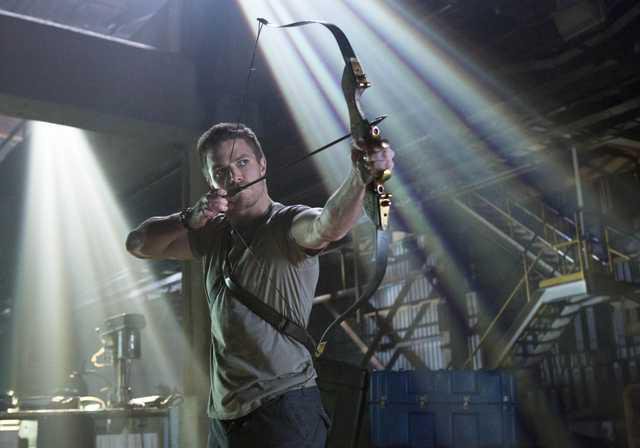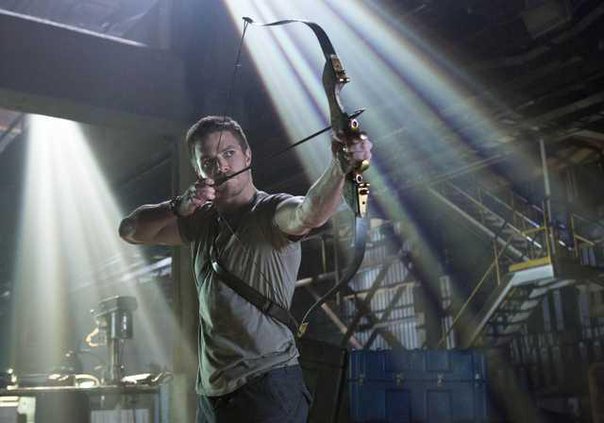My latest excursion in Netflix binge-watching has led me to discover "Arrow," the CW's series that reinterprets a DC Comics staple character. As I'm a comic book junkie since way back, I ought to have been watching this show from the beginning, but I studiously avoided it in its first two seasons.
Why, you may ask?
Well, it's not that complicated. I've just always thought Green Arrow was a pretty dippy superhero.
As a kid, my problems with the so-called Emerald Archer focused on the ludicrous nature of his secret identity. Critics are quick to point out how absurd it is that Superman camouflages himself with just a pair of glasses, but Oliver Queen's disguise was even more transparent. Not only was he the richest, most visible guy in the city, but he was also the only one sporting a blond, pseudo-Shakespearean moustache and goatee. So when he slaps a small black mask over his eyes, no one makes the facial hair connection? Please.
As I got older, I found his M.O. to be just as ridiculous as his I.D. Look! It’s a superhero who prowls the streets brandishing obsolete, medieval weaponry against thugs with machine guns! How does that make any sense? Change your name to “Green Uzi,” and then maybe we’ll talk.
I was pleased to discover that “Arrow” addresses most of those problems head-on, and in plausible ways. The Robin Hood beard has been replaced with permanent five-o’clock shadow, and he somehow makes a bow and arrow look far more intimidating than it did when I was getting my archery merit badge. But what makes this series truly unique is that it goes out of its way to explore the moral pitfalls inherent in dressing up in a costume and fighting crime without proper legal authority.
Comic books have historically tended to overlook the fact that their heroes spend an awful lot of time lying. Every day that Clark Kent showed up for work and acted like a buffoon to pretend he wasn’t the most powerful being on the planet, he was deliberately deceiving everyone around him, including his closest friends. Nobody seemed to notice that such dishonesty is inconsistent with truth, justice and the American way.
But “Arrow” notices.
Much of the angst that Oliver Queen feels in the series comes from the burden of the secret he carries, and the damage that his lies do to his friends and family. I don’t remember any superhero story on television tackling this issue, and it adds a welcome complexity to the story that makes it far more interesting than it would have been otherwise.
But the most fascinating part of “Arrow” is its exploration of the darker elements of vigilantism. Oliver and his arrows end up taking quite a few lives, and the series repeatedly questions whether this guy is truly a hero or just another murderer. In the comic books, this isn’t as pressing an issue, because the game is usually rigged so that the guy in tights can achieve his goal without piling up a body count. The real world isn’t nearly as tidy, and neither is “Arrow.” A tragedy at the end of the first season compels Oliver to consider his methods and avoid killing altogether, which raises a number of interesting problems and dilemmas for Oliver going forward.
That’s not to say that “Arrow” is heady, highbrow stuff. It frequently descends into soap opera nonsense, and it falls victim to a number of standard comic book and TV tropes along the way. But the fact that it is even interested in some of these larger questions raises it several notches above standard superhero genre fare.
So I’ll keep watching until Oliver decides to grow a six-inch goatee. After that, all bets are off.
Jim Bennett is a recovering actor, theater producer and politico, and he writes about pop culture and politics at his blog, stallioncornell.com.





